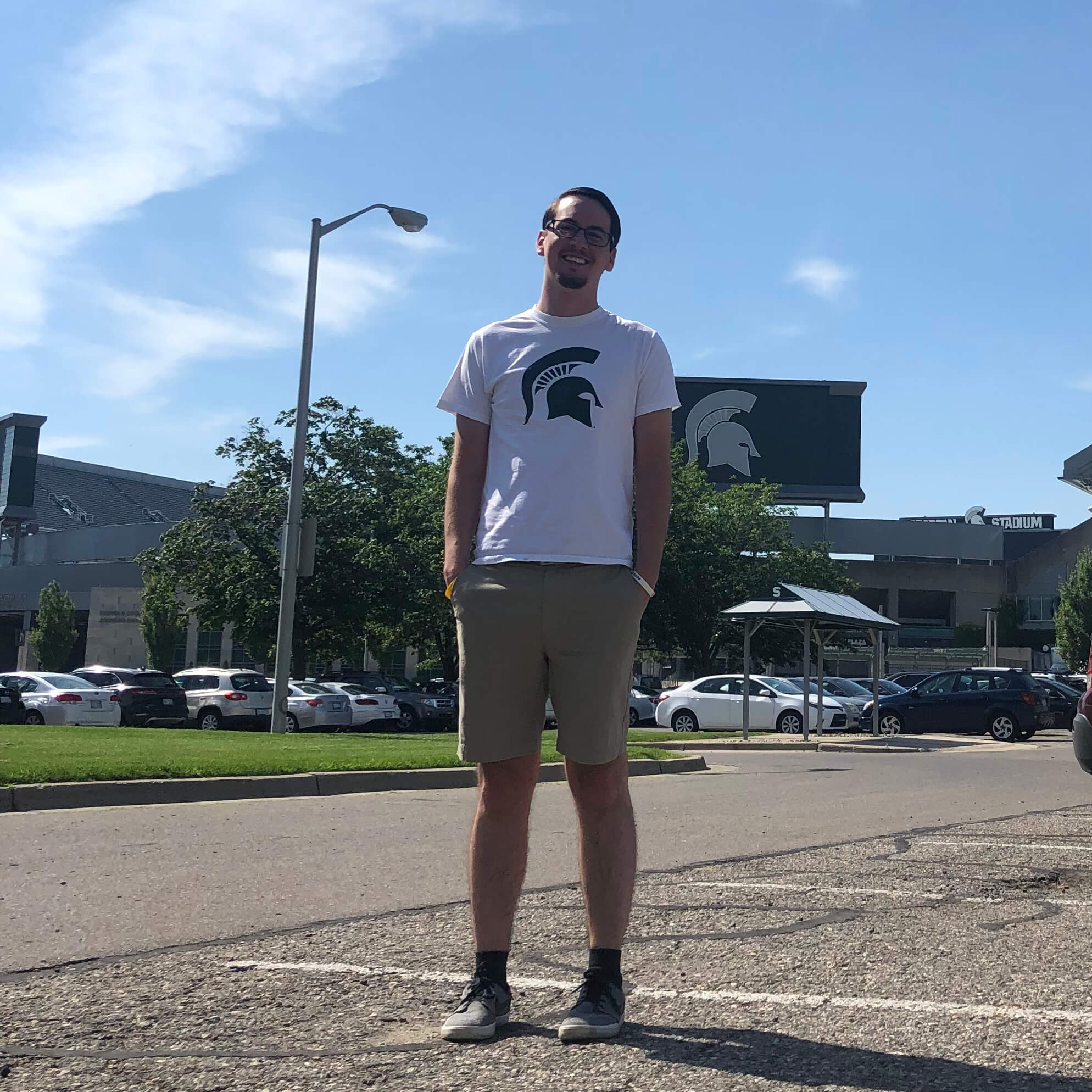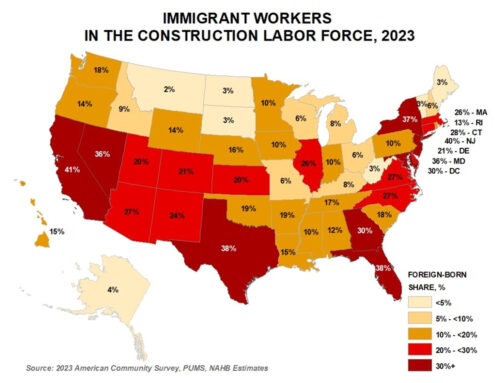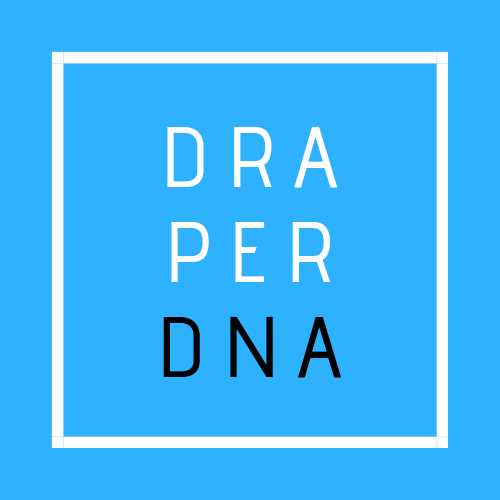There is a Difference featuring Andrew Prince
June 28, 2021
What is the strangest thing you’ve Googled this week? SEO expert, Andrew Prince, likely knows. Andrew sits down with Draper DNA to talk about what makes a difference in the ever-evolving world of the internet. We also talk about its importance and how it works best if integrated with other pillars in the marketing space.
Andrew: I am Andrew Prince and I’m the Senior SEO Analyst at the Law Offices of James Scott Farrin. Yes, the ones in North Carolina with the crazy commercials. I have worked for a couple of different agencies and am now at the point where I work in-house. I’ve worked exclusively in SEO for the last handful of years.
Tell us about SEO, what it means, and why it’s important for businesses to pay attention to.
Andrew: SEO stands for “search engine optimization”, which is just about all anyone knows about SEO, if anything at all. In college, before I started as a SEO professional, there was a marketing 101 exam question about its meaning, and its definition was all I knew. Now that I actually know more about it I can share some cool stuff. Basically, SEO is the art of attempting to appear in search engines like Google, Bing or Yahoo! and persuading people to interact with your website. The really great thing about SEO is that it’s free in a way, so it’s not like paid ads or Yelp ads or HomeAdvisor where you’re paying for clicks or for people to see your brand.
It is free traffic from search engines, which is advantageous for businesses long-term because no one wants to have to pay for everything forever. If you can optimize and tweak things on your website to show up in search engines, it’s a really great high-growth marketing channel because it’s free. However, it does take time. If you hear someone say, “I want to hire someone to do SEO and get results, and be ranked number one in two months,” run the other way. SEO takes time to do well.
You do a lot of research as an SEO professional, so how does that make a difference in your job?
Andrew: I certainly do research and a wide variety of it. I follow many SEO professionals on Twitter, I sign up for email newsletters, and go to professional meetups. I’m gaining a lot of knowledge from various sources and it helps in a few ways. One, SEO is always changing, so understanding when new features are added is key especially for search results. For example, the “people also ask” section on Google hasn’t always been there. That’s just one example where being able to do research and understanding what’s changing in search results is very important. It’s advantageous for me to do a lot of research for SEO, in testing, as well. With SEO, what works on one website may not work on another website. Being able to read and see what others have done on their websites to understand what I should test on the websites that I work on is very helpful.
The second thing is that working with other departments or practices and understanding how they think and work is crucial as an SEO. Working with designers, developers, social media managers, C-suite executives — SEO is a very nuanced and niche topic that you have to spend a lot of time with. Being able to research and understand how to effectively communicate SEO to different stakeholders is vital in this role.
How would you say the marriage of paid, earned, and owned media makes sense for a brand?
Andrew: I would say that in starting off, if you’re launching a brand-new website, use paid. As I mentioned earlier, SEO can take time to do it the right way and the easiest way to get eyeballs on your website from the get-go is by paying for traffic. Whether that’s Google Ads or HomeAdvisor, there are many different ways that you can spend money on ads online to get people to your website quickly. So I would say to start off if you’re a new website, pay for traffic to come in. As time goes on you will build more of a reputation and people will understand who you are.
I would also say to always work on earned media. Building your reputation is not something that should never stop and it also helps with SEO. I’m going to bring earned and SEO together because, for example, the little blue hyperlinks that you can get on other people’s websites if they cover your company, is like a vote of confidence from a search engine to go to your website. If you run a PR piece and it’s picked up and shared on another website through citation and a link, it can really help you from an SEO perspective.
One big mistake that I see companies doing is they pay a lot of money on ads and say, “Oh, when we get time we’ll work on SEO or we’ll work on engaging on social media.” And they never quite get there. So there has to be a strategy in place to be able to transition paid to the owned, because again it’s free. Pay for things upfront, generate some interest, get some earned going, and transition it to owned media over time. Start with paid, always build your earned, and then over time transition to owned because it’s the most scalable channel that you can have to be able to bring people to your website and drive business that way.
You’re working for a company that is in a different state in which you live. What are some tips you have for working from home from such a far distance?
Andrew: Working from home, especially 800 miles away from where my company is based, I would say that having consistent conversations with a team is key. For me, it’s built in that three times a week I’m meeting with other team members in the morning to talk about work, but also just chat. Staying connected is a big deal while working from home. There is no water cooler. Something that I loved when I worked at agencies was asking colleagues, “Hey, what are you working on?” I found that I could really learn a lot about what they’re doing and how to interact in that setting. Staying connected is a big deal.
I also make sure I take intentional breaks. A couple of times a day I’ll go take a 10 to 15 minute walk around the neighborhood. It’s okay to be able to take that time for yourself and go out and be on your phone or clear your mind.
How does understanding SEO so pragmatically affect the way you use social media personally?
Andrew: Social media is interesting. I never quite understand what I should share, and where I should share it. What I do understand is that I have a deep passion for SEO and I should be able to talk about those things. But then selfishly, I understand the benefits of SEO through social media and how that works. Like I mentioned earlier about having another website linked to you. If I have a big article that my company has released, I’ll make sure that I share that article on social media because hopefully other people pick it up and want to put it on their website or generate conversation that way. Being able to use certain phrases or hashtags that I know people are searching for is advantageous. I always share on my Instagram Stories things that people are searching for because I have insight into data of what 250 people every month are searching. It’s a fun thing for me, but also in the back of my mind when I’m sharing some things on social media I understand this is how people search and how they talk and it shouldn’t just be used for your websites. So, being able to do research about SEO really gives you insight into your audience to be able to understand how to talk with them and engage with them on social media.
It’s funny because people see SEO as kind of one vertical and one thing, but I like to say companies would not need to hire an SEO expert if every person on the marketing team understood how to do their job with SEO in mind. That includes a social media person, a developer, a designer, what have you. I love the fact that my job exists and I get to do what I do and it does impact how I communicate with others or share things on social media. Social media and SEO are kind of brother and sister because they’re always evolving and changing, and how people interact with the different platforms is always evolving. It keeps me on my toes and I love what I do.
Thanks, Andrew! If you’re an expert in the digital and online space and would like to share insights with the “There is a Difference” video interview series, please reach out to Abby at abby@draperdna.com





